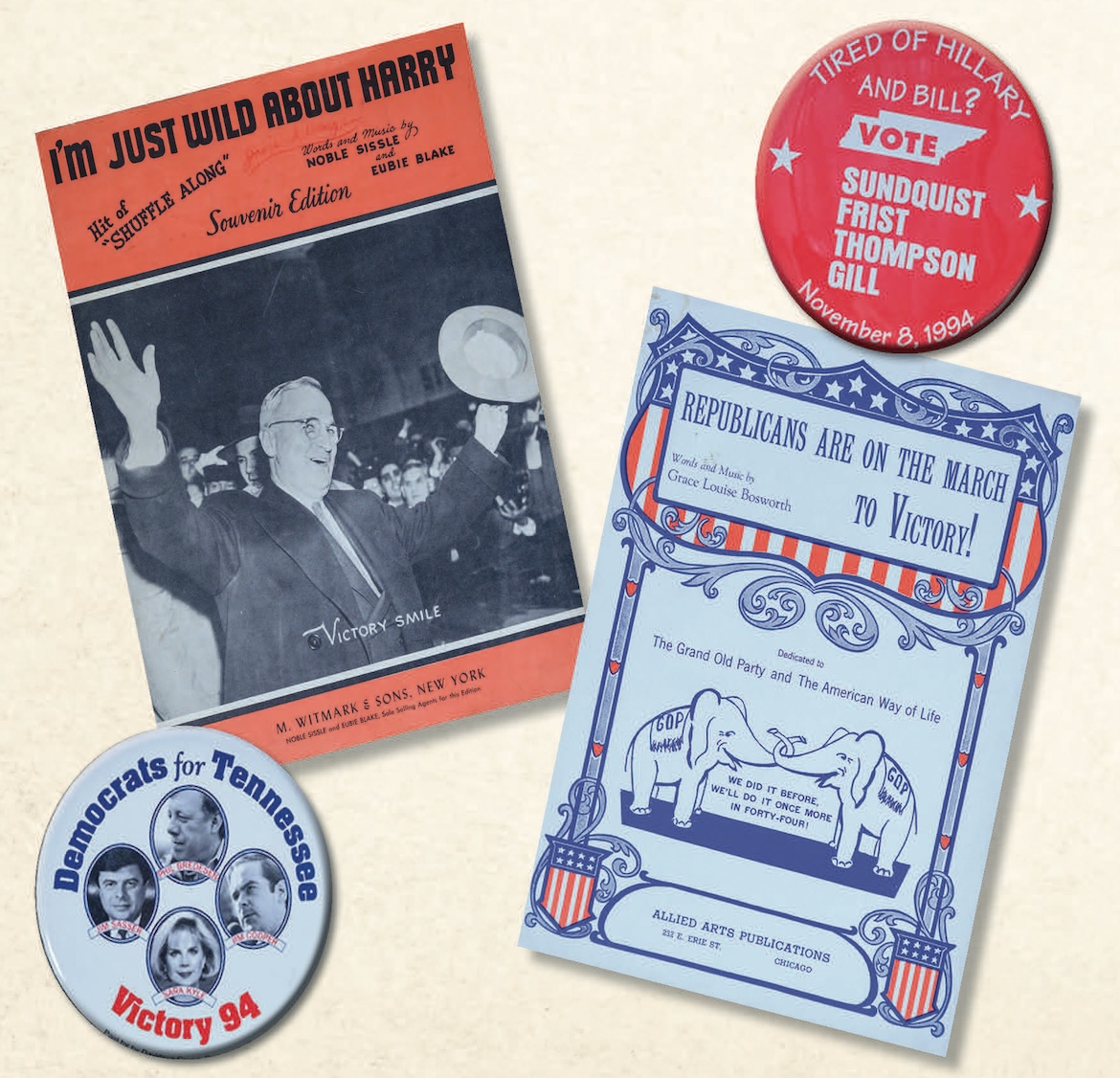
by Louis M. Kyriakoudes
How do candidates for office communicate with voters? Television, radio, and online platforms fill this role. But candidates and their campaigns also create posters, signs, buttons, bumper stickers, and themed merchandise to build name identification and create excitement for their candidacy. These artifacts comprise a rich heritage of material culture documenting American democracy.
Often, these items do not survive the campaigns for which they were created. However, prominent Tennessee political leader and businessman Johnny Hayes (1941–2008) loved American politics, and it fueled a passion for collecting political memorabilia. Over the years, he assembled one of the largest political collections in the United States and the most important collection documenting the history of Tennessee politics. In 2019, Hayes’ children—Craig Hayes, Amy Hayes, and Mary Kate Mouser—donated their father’s extensive collection to the Albert Gore Research Center so that future generations of students, teachers, scholars, and the public may learn and benefit from the collection.
Hayes made his mark in a career devoted to public service. He served as the financial chair of the congressional, senatorial, and presidential campaigns of Al Gore (son of Albert Gore Sr., an MTSU alumnus and former U.S. senator) and the gubernatorial campaigns of Phil Bredesen. He also served as Tennessee’s commissioner of Economic and Community Development during Gov. Ned McWherter’s administration and on the board of directors of the Tennessee Valley Authority.
Hayes was a generous mentor to young people wanting to be involved in public service. George Phillips, a prominent Nashville attorney, volunteered for Al Gore’s 1984 U.S. Senate campaign when he was an undergraduate student. Phillips recalled that Hayes was “a great mentor to me.” His experience with Gore’s campaign led to serving as a staff member of Gore’s office and then a long career in public service. Phillips also noted that Hayes “had an enormous heart for people.”
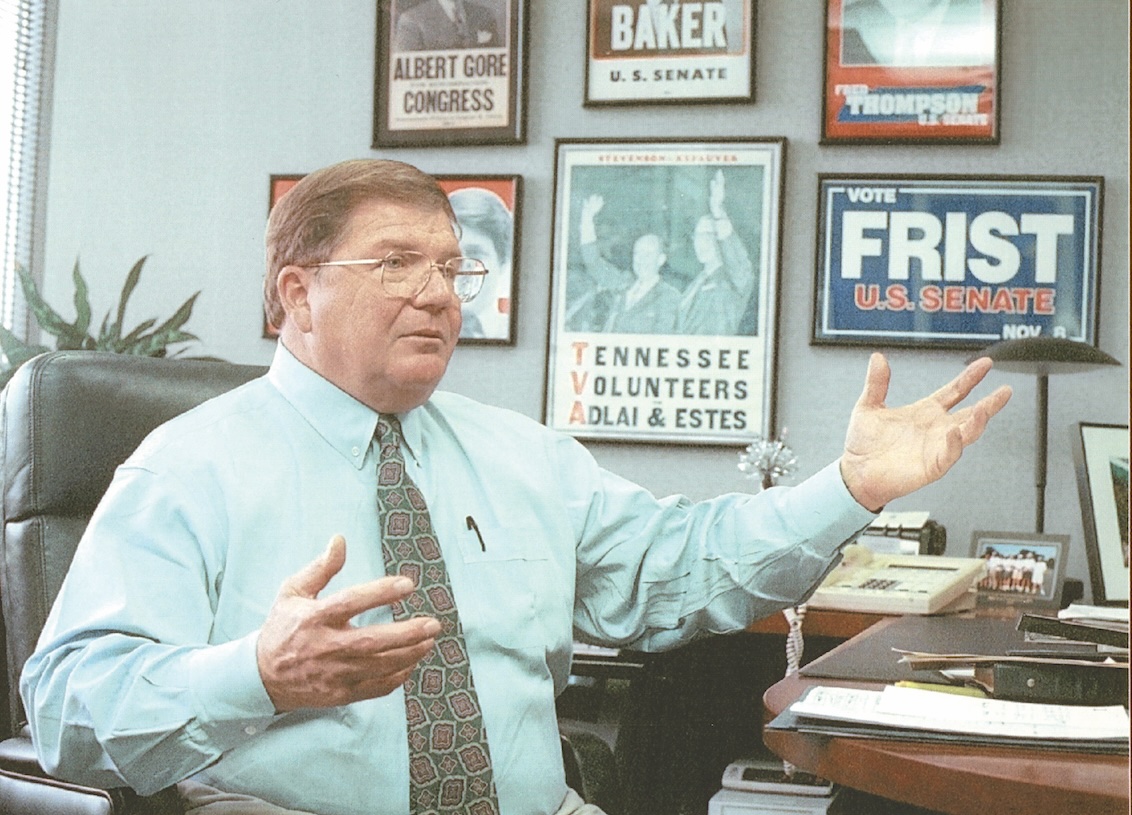
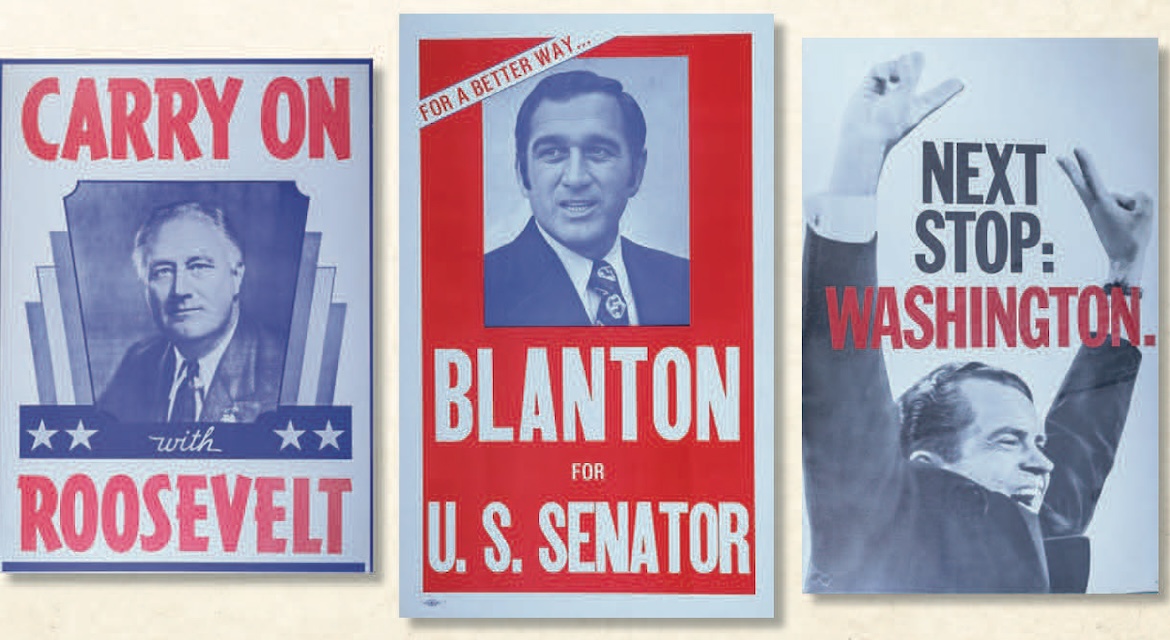
On the Trail and on the Hunt
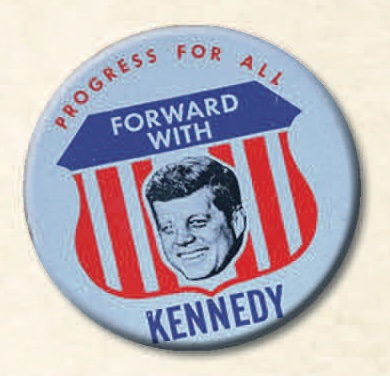
Hayes was always on the lookout for interesting political items. His service in Tennessee’s government in the 1990s required him to travel across the state. Ronnie Steine, a friend and fellow political memorabilia collector, recalled that Hayes made a point of visiting local antique shops and flea markets always on the hunt for an interesting political button, poster, or banner. Hayes displayed his materials in a small building next to his home.
“Showing off his political memorabilia was his greatest joy,” daughter Amy Hayes said. “Every time you walked into the building where the collection was housed at his home, it was a new history lesson.”
The collection itself is enormous. Gore Center archivist Hannah Meller has been overseeing the processing and digitization of the collection. She notes that the Hayes Collection “contains thousands of buttons, hundreds of political posters and paper documents, and hundreds more three-dimensional objects, like busts of John F. Kennedy, presidential glassware, shirts, donkey and elephant statues, hats, food products, [and even politically themed] toys.”
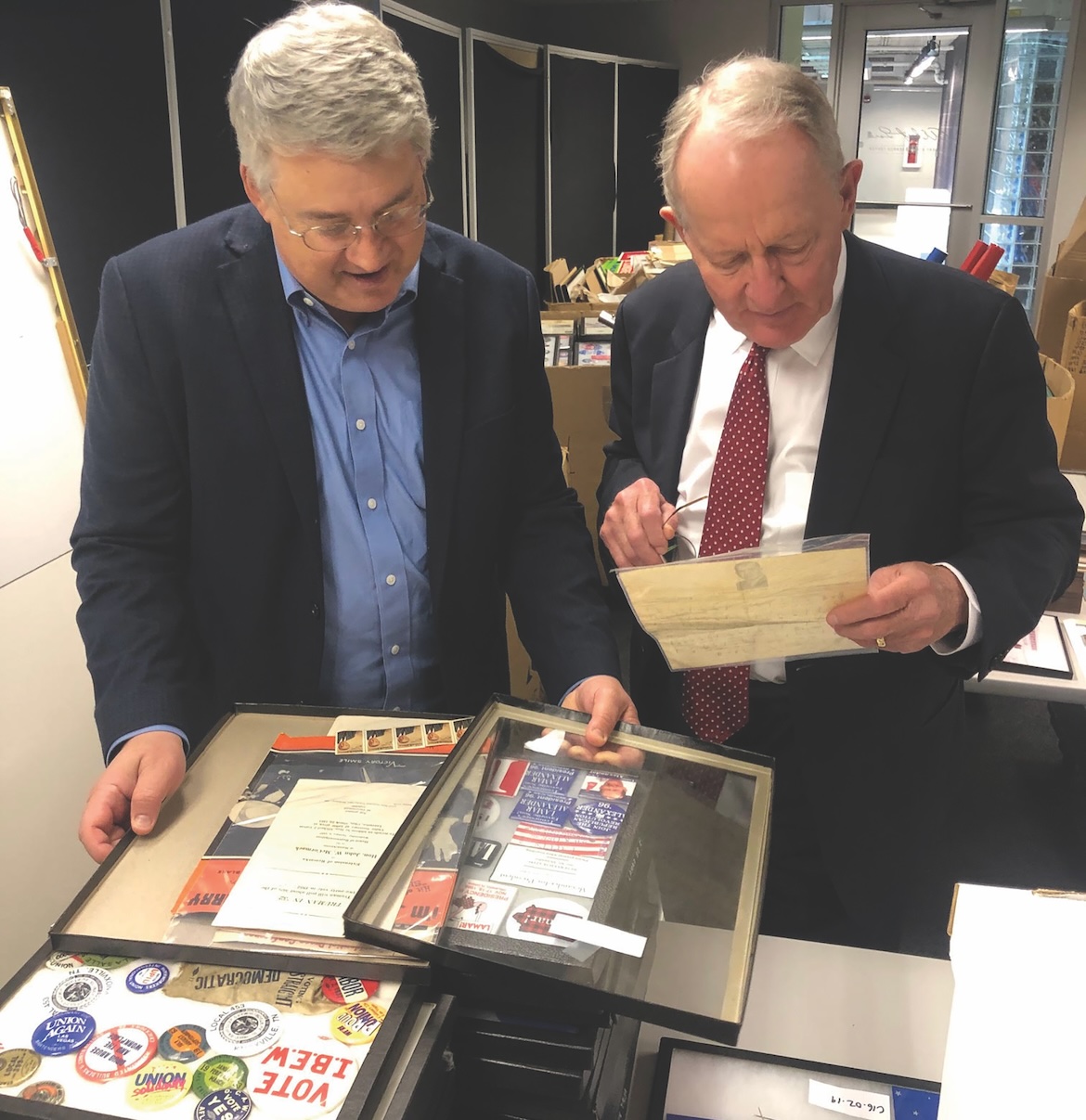

The collection holds important 19th-century items, including prints from James K. Polk’s 1844 campaign for president. There is a large muslin Lincoln-Johnson banner from the 1864 presidential election. Every 20th-century presidential campaign and most of the Republican and Democratic nominating conventions are well documented with buttons, banners, posters, and programs. Some of Meller’s favorite items in the collection are a set of bandanas and scarves with eye-catching campaign messages, including a Ronald Reagan scarf from the 1980 Republican convention.
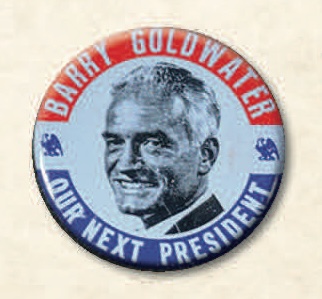 Hayes was always on the lookout for interesting political items. His service in Tennessee’s government in the 1990s required him to travel across the state. Ronnie Steine, a friend and fellow political memorabilia collector, recalled that Hayes made a point of visiting local antique shops and flea markets always on the hunt for an interesting political button, poster, or banner. Hayes displayed his materials in a small building next to his home.
Hayes was always on the lookout for interesting political items. His service in Tennessee’s government in the 1990s required him to travel across the state. Ronnie Steine, a friend and fellow political memorabilia collector, recalled that Hayes made a point of visiting local antique shops and flea markets always on the hunt for an interesting political button, poster, or banner. Hayes displayed his materials in a small building next to his home.
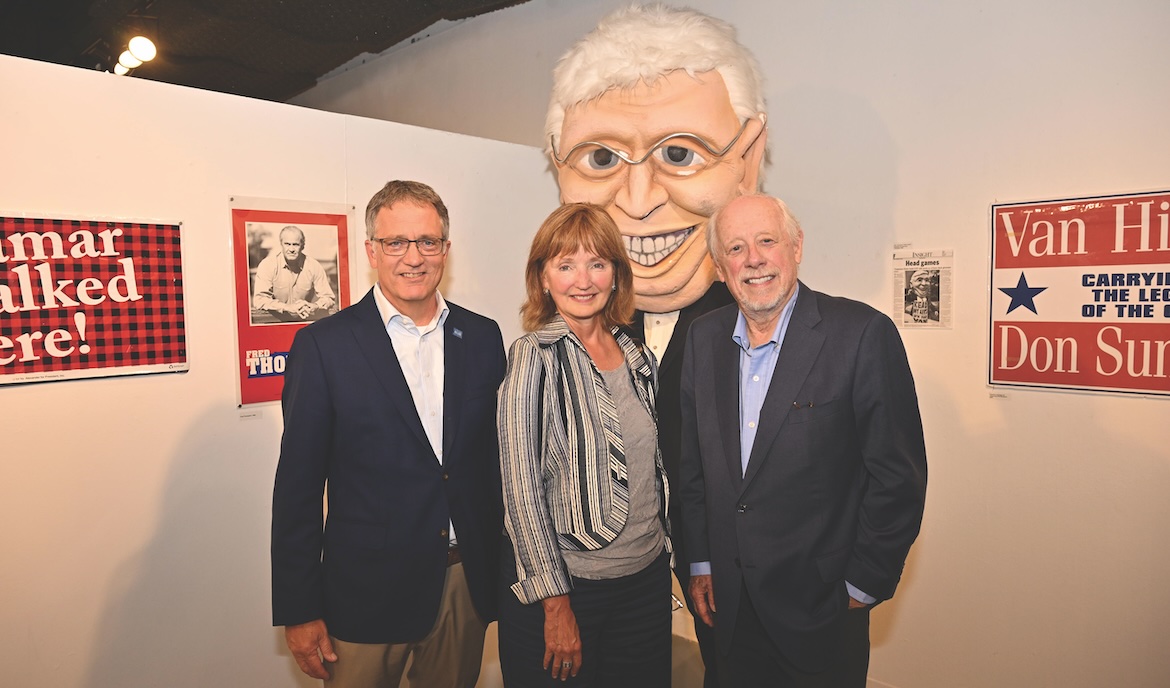

Preserving Political Legacy
The processing of the Hayes Collection has been fully integrated into the archival training mission of the Gore Center. Meller began working on the Hayes Collection while a graduate student in fall 2019, soon after the memorabilia arrived at the Gore Center.
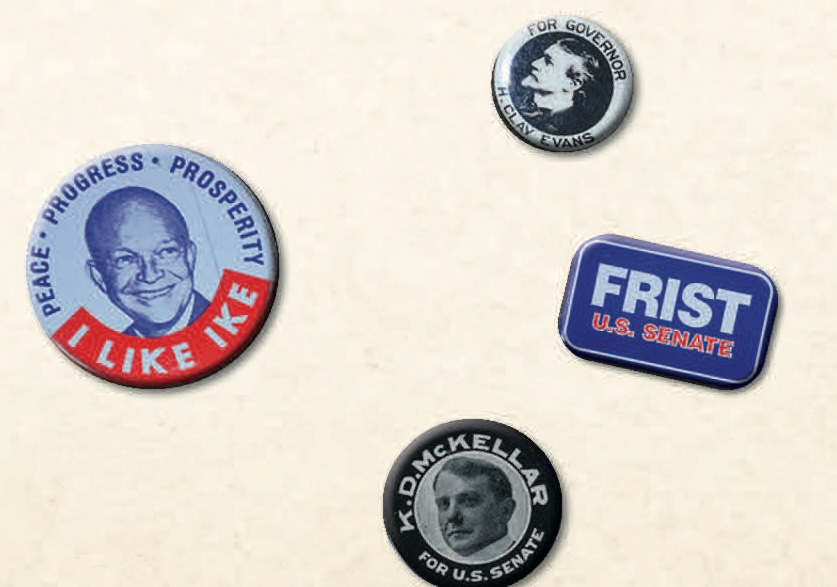
In 2021, a grant-writing team led by CLA Dean Leah Tolbert Lyons secured funding for the processing of the collection. This allowed Meller, recently graduated with a History M.A. with a Public History concentration, to join the Gore Center’s full-time staff. The grant also supported graduate assistants and the creation of a digitization lab for oversized archival materials. The team was able to process a significant portion of the collection and create digital images of over 1,000 of the most compelling items, which are now available online.
Processing the collection proved to be an intensive education in American political history for the Gore Center’s student archivists and staff. Each item needed to be researched so that it could be accurately described and placed in historical context. Creating digital images of the oversized posters required learning new technical and database skills. Older, brittle posters had to be encapsulated in Mylar film to preserve them. Students learned about the importance of shielding items from ultraviolet light and how to preserve older fabric artifacts. The many Public History graduate students who have worked on the Hayes Collection have gotten unequaled hands-on training in archives and museum techniques and processes that helped launch their professional careers.
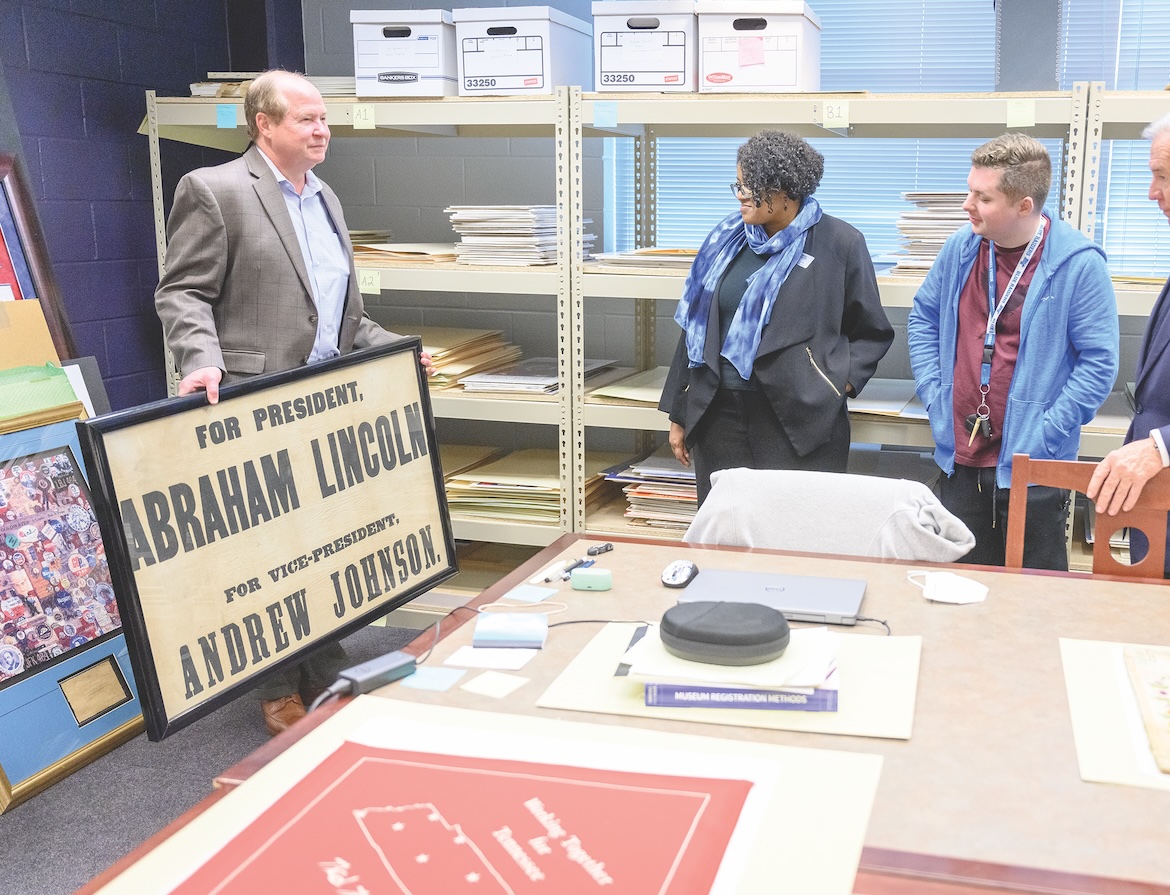
Democracy on Display
In October 2024, the Gore Center staff and students curated an exhibition of selections from the Hayes Collection titled “The Art & History of Political Campaign Communication: Selections from the Johnny Hayes Political Memorabilia Collection at the Albert Gore Research Center.” As center director, I was assisted by Public History graduate student Logan Williamson in choosing almost 100 of the most historically significant items for showing in MTSU’s Todd Art Gallery.
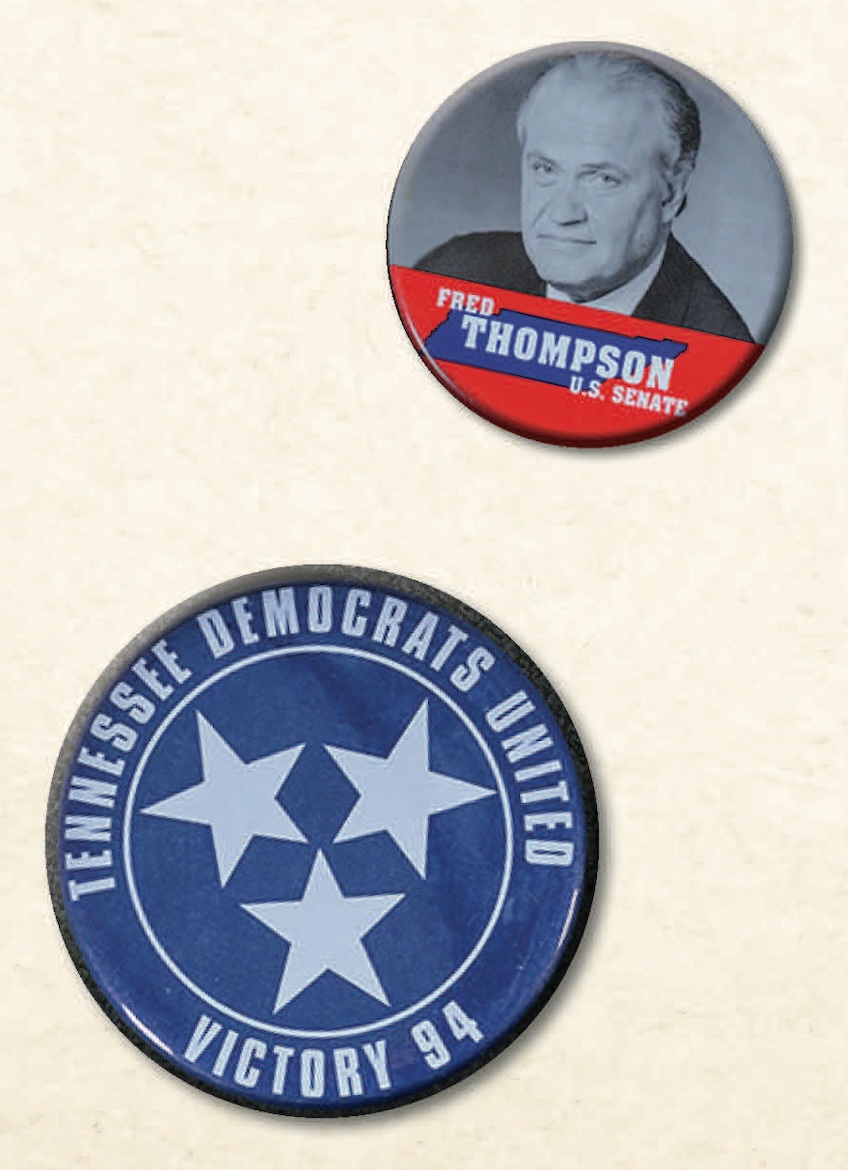
To launch the exhibit, the Gore Center sponsored a panel discussion on political communication featuring a panel of prominent Tennessee political leaders and scholars. Mark Tipps, former U.S. Senate Majority Leader Bill Frist’s first chief of staff, joined former U.S. Rep. Jim Cooper’s chief of staff Lisa Quigley, former state House Speaker and current Distinguished Visiting Professor Beth Harwell, and MTSU Political Science Professor Kent Syler to discuss how candidates communicate their positions and policies to the public. A reception followed where Hayes’ friends and colleagues gathered to remember his service and celebrate American democracy.
Beyond this exhibit, the Hayes Collection is already widely used in the classroom by faculty and students at MTSU. Syler uses the materials in courses on campaign management and American politics, for instance, and I integrate the Hayes Collection into my Southern political history classes.
“The Johnny Hayes Collection delivers a visual history of political communications in Tennessee and the United States,” Syler said. “It is a great resource for students.”
Click to access the Johnny Hayes Political Memorabilia Online Collection.
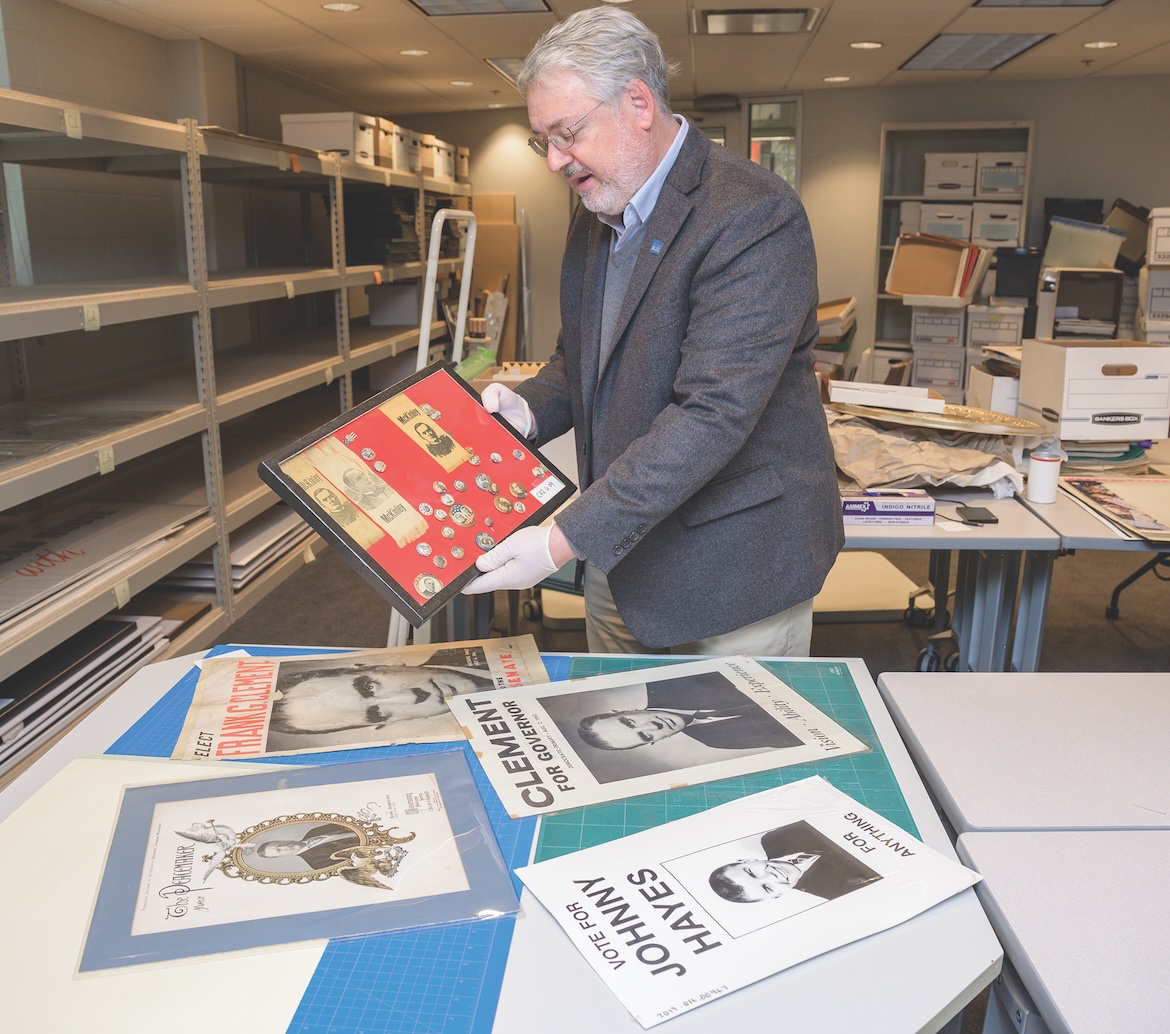
Louis M. Kyriakoudes is a professor of History and director of the Albert Gore Research Center.

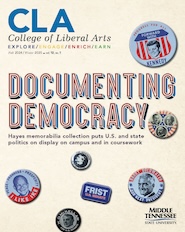
COMMENTS ARE OFF THIS POST